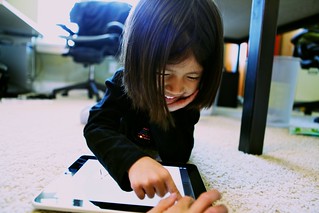-
5
Jun

If you take a walk through your local Best Buy or Home Depot, after just a few minutes browsing you will notice a variety of smart devices available to consumers at a relatively low cost. For example, a 32-inch Smart HDTV can be purchased for around $150. These smart devices are enabled with Wi-Fi access and many of them preloaded with a variety of streaming media applications that consumers can log into and begin viewing upon unpacking the device. Not even appliances are immune to the smart device revolution. Many refrigerators are being built with touchscreens on the doors and with network connectivity. Soon, we may be watching “television” from our refrigerator while we are preparing dinner.
As a result of the smart device revolution, today’s youth have left live television behind. Media consumption has shifted from television to digital streaming services like Netflix, Hulu, Amazon Prime and others. Children are consuming media via device, whether it is music via Spotify, Pandora, Soundcloud, Tidal and others or video via the iTunes Store, WatchESPN, Netflix or Amazon Prime. As such, digital reading platforms have begun to emerge to take advantage of the connected child. Tech-savvy parents and teachers can provide children and students with anytime-anyplace access to thousands of age-appropriate titles, which in the near future, could be accessed by toddlers from a touch-screen on the refrigerator door.
What does this mean in the world of the young child? What does it mean for children that are learning to read and interact with a variety of forms of literacy materials? Gone are the days of sitting your child on the kitchen floor with building blocks or storybook. Instead, they are plugged into the matrix and have connections to any number of streaming media platforms. How will children interact with literacy in the environment of the smart home? What does this mean for teaching kids the alphabet or their numbers? How does this impact the way that we can teach kids how to read, write, communicate and be literate in this streaming world? Do we need to have different expectations for what it means to be literate in our world today? Are expected expectations for student achievement relevant and attainable in this new age that we’re living in? Questions such as these must be considered to ensure that teachers are educating youth for the world they will live in tomorrow.
- Published by brueckj23 in: Raised Digital
- If you like this blog please take a second from your precious time and subscribe to my rss feed!

Leave a Reply